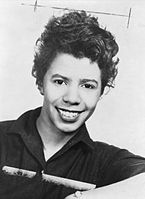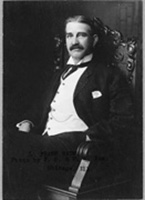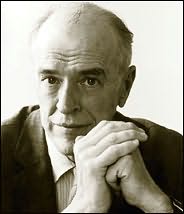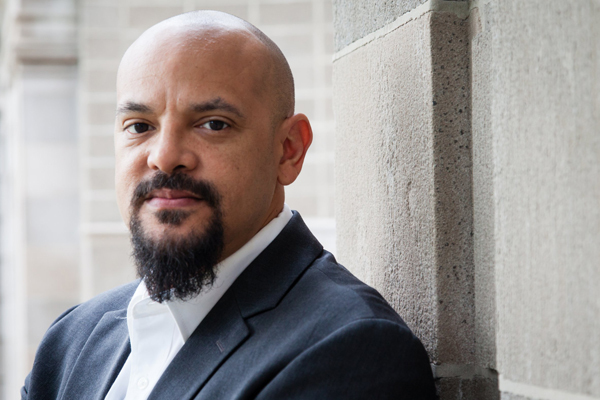
Cedric G. Johnson
Born:
Connection to Illinois: Johnson has been at the University of Illinois at Chicago since 2011. Biography: Cedric Johnson is professor of African American Studies and Political Science at the University of Illinois at Chicago. He is the editor of The Neoliberal Deluge: Hurricane Katrina, Late Capitalism and the Remaking of New Orleans. His 2017 Catalyst essay, “The Panthers Can’t Save Us Now: Anti-policing Struggles and the Limits of Black Power,” was awarded the 2018 Daniel Singer Millenium Prize. Johnson’s writings have appeared in Nonsite, Jacobin, New Political Science, New Labor Forum, Perspectives on Politics, Historical Materialism, and Journal of Developing Societies. In 2008, Johnson was named the Jon Garlock Labor Educator of the Year by the Rochester Central Labor Council, AFL-CIO. He previously served on the representative assembly for UIC United Faculty Local 6456.
Awards:
- Revolutionaries to Race Leaders 2008 W.E.B. DuBois Outstanding Book of the Year by the National Conference of Black Political Scientists
- The Panthers Can't Save Us Now Daniel Singer Millenium Prize
Web: https://pols.uic.edu/profiles/johnson-cedric/
WorldCat: http://www.worldcat.org/search?q=Cedric++G.++Johnson
Selected Titles
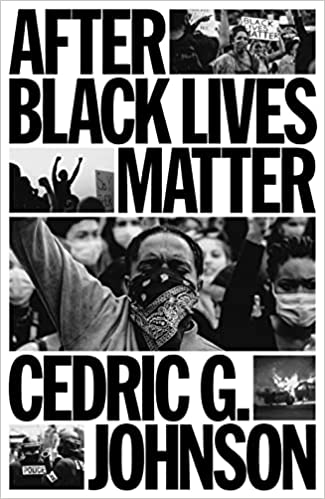 |
After Black Lives Matter ISBN: 1804291676 OCLC: 1347700181 Verso 2023 Contemporary policing reflects the turn from welfare to domestic warfare as the chief means of regulating the excluded and oppressed The historic uprising in the wake of the murder of George Floyd transformed the way we think about race and policing. Why did it achieve so little in the way of substantive reforms? After Black Lives Matter argues that the failure to leave an institutional residue was not simply due to the mercurial and reactive character of the protests. Rather, the core of the movement itself failed to locate the central racial injustice that underpins the crisis of policing: socio-economic inequality. For Johnson, the anti-capitalist and downwardly redistributive politics expressed by different Black Lives Matter elements has too often been drowned out in the flood of black wealth creation, fetishism of Jim Crow black entrepreneurship, corporate diversity initiatives, and a quixotic reparations demand. None of these political tendencies addresses the fundamental problem underlying mass incarceration. That is the turn from welfare to domestic warfare as the chief means of regulating the excluded and oppressed. Johnson sees the way forward in building popular democratic power to advance public works and public goods. Rather than abolishing police, After Black Lives Matter argues for abolishing the conditions of alienation and exploitation contemporary policing exists to manage. |
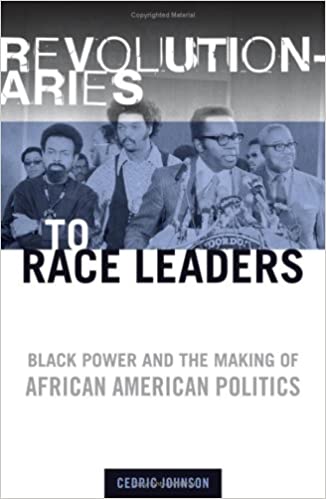 |
Revolutionaries to Race Leaders: Black Power and the Making of African American Politics ISBN: 0816644772 OCLC: 191734312 Univ Of Minnesota Press Minneapolis : 2007 The Black Power movement represented a key turning point in American politics. Disenchanted by the hollow progress of federal desegregation during the 1960s, many black citizens and leaders across the United States demanded meaningful self-determination. The popular movement they created was marked by a vigorous artistic renaissance, militant political action, and fierce ideological debate. Exploring the major political and intellectual currents from the Black Power era to the present, Cedric Johnson reveals how black political life gradually conformed to liberal democratic capitalism and how the movement’s most radical aims—the rejection of white aesthetic standards, redefinition of black identity, solidarity with the Third World, and anticapitalist revolution—were gradually eclipsed by more moderate aspirations. Although Black Power activists transformed the face of American government, Johnson contends that the evolution of the movement as a form of ethnic politics restricted the struggle for social justice to the world of formal politics. Johnson offers a compelling and theoretically sophisticated critique of the rhetoric and strategies that emerged in this period. Drawing on extensive archival research, he reinterprets the place of key intellectual figures, such as Harold Cruse and Amiri Baraka, and influential organizations, including the African Liberation Support Committee, the National Black Political Assembly, and the National Black Independent Political Party in postsegregation black politics, while at the same time identifying the contradictions of Black Power radicalism itself. Documenting the historical retreat from radical, democratic struggle, Revolutionaries to Race Leaders ultimately calls for the renewal of popular struggle and class-conscious politics. |
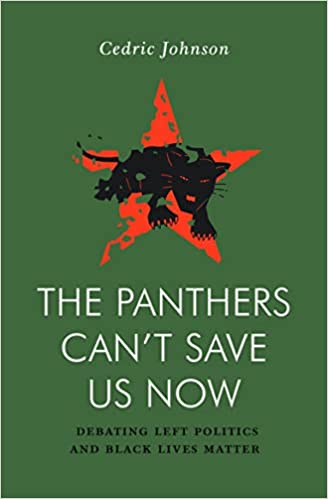 |
The Panthers Can't Save Us Now: Debating Left Politics and Black Lives Matter ISBN: 1839766301 OCLC: 1289262024 Verso 2022 Ending the horrors of police violence requires addressing economic inequality In the wake of the mass protests following the police murder of George Floyd nearly every major consumer brand had proclaimed their commitments to antiracism, often with new ad campaigns to match their tweets. Very little in the way of police reform has been achieved. Still less was achieved around policies that might help the millions of black Americans living at or below the poverty line. Why has anti-racism been such a powerful source of mobilization but such a poor means of building political opposition capable of winning big reforms? This volume revisits a debate that transpired during Black Live Matter’s first wave. Writing against the grain of popular left sentiments, Johnson cautions against a new ethnic politics. Instead, he calls for broad-based left politics as the only viable means for ending the twin crises of racial inequality and police violence. Redistribution, public goods, and multi-ethnic working-class solidarity are the only viable response to the horrors of police violence and mass incarceration. It just so happens that fighting the conditions that make crime and violence inevitable is also the means by which we can build a working-class majority and a more equal and peaceful nation. |


